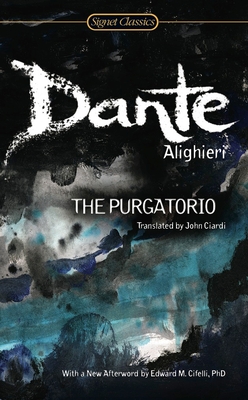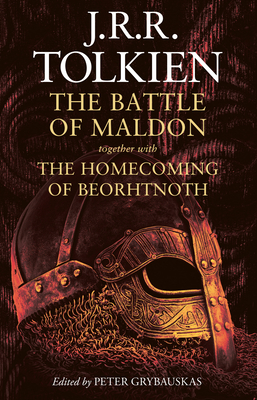







This luxurious hardback edition presents Dante's celebrated work, The Divine Comedy, with opulent gold cover embossing, striking illustrated page edges and 135 classic illustrations by Gustave Doré.
Dante's Divine Comedy is regarded as a masterpiece of medieval literature, telling the story of Dante's descent into hell, his journey through purgatory and eventual ascent into heaven, with Virgil as his guide. Along with stirring adventures and boundless imagination are Dante's reflections on spirituality and the nature of faith and reason in the world. From the pilgrim's deepening insight into the workings of evil and moral choice (Hell) through to the dramatization of the nature and purpose of moral conversion (Purgatory) to the blissfully mystical ascent before God (Paradise), Dante's cosmic vision remains unparalleled. This beautiful hardback edition, with gold foil accents and stunning printed edges, includes Henry W. Longfellow's classic translation, 135 magnificent, full-page illustrations by Gustave Doré and a brilliant introduction by Anna Amari-Parker, full of accessible analysis of Dante's allegorical tale. ABOUT THE SERIES: Arcturus Epic Classics brings together stunning hardback gift editions of classic works, presented with striking illustrated page edges and illustrated throughout by such greats as Gustave Doré and Harry Clarke.
A NEW YORK TIMES BEST POETRY BOOK OF THE YEAR
In the beginning, the world is spoken into existence with one word: Earth. There are no inhabitants, and no sun--only the broad sky, silent sea, and sovereign Framer and Shaper. Then come the twin heroes Hunahpu and Xbalanque. Wielding blowguns, they begin a journey to hell and back, ready to confront the folly of false deities as well as death itself, in service to the world and to humanity.
This is the story of the Mayan Popol Vuh, the book of the woven mat, one of the only epics indigenous to the Americas. Originally sung and chanted, before being translated into prose--and now, for the first time, translated back into verse by Michael Bazzett--this is a story of the generative power of language. A story that asks not only Where did you come from? but How might you live again? A story that, for the first time in English, lives fully as the phonetic rendering of a living pulse.
By turns poetic and lucid, sinuous and accessible, this striking new translation of The Popol Vuh--the first in the Seedbank series of world literature--breathes new life into an essential tale.



This edition gives a side-by-side parallel translation of Dante's Divine Comedy using Longfellow's translation.
The Divine Comedy is an epic poem written by Dante Alighieri between 1308 and his death in 1321. It is generally considered to be the preeminent work of Italian literature and one of the greatest works of world literature. The poem is written in the Tuscan dialect, and the poem helped establish this dialect as the standardized Italian language. The poem is divided into three parts: Inferno, Purgatorio, and Paradiso. At the superficial level, the poem describes Dante's travels through Hell, Purgatory, and Heaven; but at a deeper level, it is an allegory of the soul's journey towards God. In order to articulate this journey towards God, Dante uses medieval Christian theology and philosophy, especially Thomistic philosophy and the Summa Theologica of Thomas Aquinas. Longfellow's translation is considered to be the best translation, overall. Longfellow, being a poet himself, was able to create a flowing translation that has not been surpassed.

The Poetic Edda is our main source for the myths of the Norse gods and heroes. Written down in medieval Iceland, this original storehouse of Germanic mythology collects 35 narrative poems recounting most of what we know about the religious beliefs of the ancient Northmen.
Henry Adams Bellows' 1923 translation has long been recognized as one of the most aesthetically faithful, being rendered in the original alliterative meters of the Norse poems. This revised edition updates it according to modern scholarship, adding a foreword by historian Thomas Rowsell, dozens of beautiful illustrations, and facing Old Norse text. Each poem has been newly introduced by Tristan Powers, writing from the perspective of a living practitioner of the Norse religion, giving us deeper insight into the worldview and religious spirit that animates them.
This edition corrects the flaws and retains the strengths of the 1923 edition. The result is the ultimate edition of the Poetic Edda both for serious students of Norse myth, and for lovers of poetry.

The first and still the best! John Milton's overwhelming masterpiece, Paradise Lost - all 10,565 brain-busting lines of it, transformed into simple, everyday language! - the kind you and I speak and understand. Milton's original poem is on each left hand page, and the simplified, Plain English translation is across from it on the right. Corresponding numbered lines on both versions make for easy comparison. Still nothing else like it! Nothing plainer, simpler, faster, easier, more complete, more concise, or more irritating to your teacher!

This Norton Critical Edition includes:




Beowulf, composed around 700 A.D., is the first great epic poem in the English language. It tells the timeless story of a hero's fight against monsters and sets it against a complex background of political intrigue and tribal warfare. Situated in sixth-century Scandinavia, the poem brings to life a magnificent world that fuses history with fantasy. Tom Shippey's new translation of Beowulf, reflecting a lifetime of engagement with the poem, makes its story clearer and more compelling than it has ever been. The original Old English text of Beowulf is included along with an extensive and innovative commentary, which guides the reader passage-by-passage through the poem and its criticism.
In addition to the text, translation, and commentary, this volume contains an extensive bibliography, a translator's preface, and an appended essay by Tom Shippey on Tolkien and Beowulf-A Lifelong Involvement. The 2nd edition (revised and expanded) adds new texts and translations (by Tom Shippey) of Waldere, the Hildebrandslied, and the Fight at Finnsburg.

Featuring both the original text and a modern, translated version, this fourteenth-century Arthurian poem tells the legendary tale of the mysterious Green Knight and Sir Gawain, a great knight of the Round Table.
The knights of the Round Table are celebrating Yuletide when their festivities are interrupted by the mystifying Green Knight riding on his green horse. The Green Knight challenges King Arthur's legendary men to a wager. He who takes a blow at the Green Knight must be prepared to accept a return attack one year and one day later. It is the gallant Sir Gawain who takes this challenge on. He raises his axe and strikes off the head of the Green Knight. Yet, the intruder is undefeated. Still alive, he picks up his head, and promises he will see Sir Gawain in a year and a day.
In stanzas of alliterative verse ending in a rhyming bob and wheel, the poem chronicles Sir Gawain's heroic quest. This high-quality edition features both William Allan Neilson's 1917 translated text and the original version by the anonymous writer, known as the 'Pearl Poet' or the 'Gawain Poet'.
Ragged Hand has proudly republished this classic poem in a beautiful new edition, complete with an introduction by K. G. T. Webster. This volume is not to be missed by fans of the famous legend of King Arthur and his Knights of the Round Table.


One of the oldest extant works of Western literature, the Iliad is a timeless epic poem of great warriors trapped between their own heroic pride and the arbitrary, often vicious decisions of fate and the gods. Renowned scholar and acclaimed translator Peter Green captures the Iliad in all its surging thunder for a new generation of readers.
Featuring an enticingly personal introduction, a detailed synopsis of each book, a wide-ranging glossary, and explanatory notes for the few puzzling in-text items, the book also includes a select bibliography for those who want to learn more about Homer and the Greek epic. This landmark translation--specifically designed, like the oral original, to be read aloud--will soon be required reading for every student of Greek antiquity, and the great traditions of history and literature to which it gave birth.